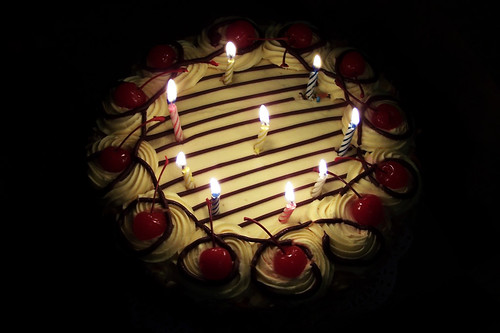Townshend is the primary songwriter for The Who, having written well over one hundred songs for the band's eleven studio albums, including concept albums and the rock operas Tommy and Quadrophenia, plus popular rock and roll radio staples like Who's Next, and dozens more that appeared as non-album singles, bonus tracks on reissues, and tracks on rarities compilations like Odds & Sods. He has also written over one hundred songs that have appeared on his solo albums, as well as radio jingles and television theme songs. Although known primarily as a guitarist, he also plays other instruments such as keyboards, banjo, accordion, synthesiser, bass guitar and drums, on his own solo albums, several Who albums, and as a guest contributor to a wide array of other artists' recordings. Townshend has never had formal lessons in any of the instruments he plays.
Born in Chiswick, London into a musical family (his father Cliff Townshend was a professional saxophonist in The Squadronaires and his mother Betty (née Dennis) was a singer), Townshend exhibited a fascination with music at an early age. In the mid-1950s he was drawn to American rock and roll; his mother recounts that he repeatedly saw the 1956 film Rock Around the Clock. When he was 12, his grandmother gave him his first guitar, which he has described as a "cheap Spanish thing". Townshend's biggest guitar influences include Link Wray, John Lee Hooker, Bo Diddley and Hank Marvin of The Shadows.
Townshend's brother Simon (who also became a musician) was born in 1960. In 1961, Townshend enrolled at Ealing Art College, with the intention to become a graphic artist and a year later, he and his school friend from Acton County Grammar School John Entwistle founded their first band, The Confederates, a Dixieland duet featuring Townshend on banjo and Entwistle on horns. From this beginning they moved on to The Detours, a skiffle/rock and roll band fronted by Roger Daltrey, another former schoolmate. With the encouragement and assistance of his old classmate Entwistle, Daltrey invited Townshend to join as well. In early 1964, because another band had the same name, The Detours renamed themselves The Who. Drummer Doug Sandom was replaced by Keith Moon not long afterwards. The band (now comprising Daltrey on lead vocals and harmonica, Townshend on guitar, Entwistle on bass guitar and french horn, and Moon on drums) were soon taken on by a mod publicist named Peter Meaden who convinced them to change their name to The High Numbers to give the band more of a mod feel. After bringing out one failed single ("I'm the Face/Zoot Suit"), they dropped Meaden and were signed on by two new managers, Chris Stamp and Kit Lambert, who had paired up with the intention of finding new talent and creating a documentary about them. The band anguished over a name that all felt represented the band best, and dropped The High Numbers name, reverting to The Who.
After The High Numbers once again became The Who, Townshend wrote several successful singles for the band, including "I Can't Explain", "Pictures of Lily", "Substitute", and "My Generation". Townshend became known for his eccentric stage style during the band's early days, often interrupting concerts with lengthy introductions of songs.[citation needed] He developed a signature move in which he would swing his right arm against the guitar strings in a style reminiscent of the vanes of a windmill. He became one of the first musicians known for smashing guitars on stage and would repeatedly throw them into his amplifiers and speaker cabinets. The first incident of guitar-smashing happened when Townshend accidentally broke the neck of his guitar on the low ceiling of an early concert venue at the Railway Tavern in Harrow. The stage, only about a foot high, nevertheless brought the ceiling to within 7 feet. After smashing the instrument to pieces, he carried on by grabbing another guitar and acting as if the broken guitar had been part of the act. Drummer Keith Moon was delighted; he loved attention and destruction on any level, and smashed his drum kit as well. The press sensationalised the incidents. The on-stage destruction of instruments soon became a regular part of The Who's performances. This was further dramatised with pyrotechnics, an idea which came from Moon, who incorporated it in his exploding drum kits. At a concert in Germany, a police officer walked up to Townshend, pointed his gun at him, and ordered him to stop smashing the guitar. Townshend, always a voluble interview subject, would later relate these antics to German/British artist Gustav Metzger's theories on auto-destructive art, to which he had been exposed at art school. However, on several occasions, he admitted that the destruction was a gimmick that set the band out apart from the others and gave them the publicity edge that they needed to be noticed.
The Who thrived, and continue to thrive, despite the deaths of two of the original members. They are regarded by many rock critics as one of the best live bands from a period of time that stretched from the mid-1960s to the 2000s, the result of a unique combination of high volume, showmanship, a wide variety of rock beats, and a high-energy sound that alternated between tight and free-form. The Who continue to perform critically acclaimed sets in the 21st century, including highly regarded performances at The Concert For New York City in 2001, the 2004 Isle of Wight Festival, Live 8 in 2005 and the 2007 Glastonbury Festival.
Townshend remained the primary songwriter and leader of the group, writing over one hundred songs which appeared on the band's eleven studio albums. Among his most well-known accomplishments are the creation of Tommy, for which the term "rock opera" was coined, and a second pioneering rock opera, Quadrophenia; his dramatic stage persona; his use of guitar feedback as sonic technique; and the introduction of the synthesiser as a rock instrument. Townshend revisited album-length storytelling throughout his career and remains the musician most associated with the rock opera form. Many studio recordings also feature Townshend on piano or keyboards, though keyboard-heavy tracks increasingly featured guest artists in the studio, such as Nicky Hopkins, John Bundrick or Chris Stainton.
Townshend is one of the key figures in the development of feedback in rock guitar. When asked who first used feedback, Deep Purple guitarist Ritchie Blackmore said, "Pete Townshend was definitely the first. But not being that good a guitarist, he used to just sort of crash chords and let the guitar feedback. He didn't get into twiddling with the dials on the amplifier until much later. He's overrated in England, but at the same time you find a lot of people like Jeff Beck and Hendrix getting credit for things he started. Townshend was the first to break his guitar, and he was the first to do a lot of things. He's very good at his chord scene, too." Similarly, when Jimmy Page was asked about the development of guitar feedback, he said, "I don't know who really did feedback first; it just sort of happened. I don't think anybody consciously nicked it from anybody else. It was just going on. But Pete Townshend obviously was the one, through the music of his group, who made the use of feedback more his style, and so it's related to him. Whereas the other players like Jeff Beck and myself were playing more single note things than chords." Many rock guitarists have cited Townshend as an influence, among them Slash, Alex Lifeson and Steve Jones. In addition to his work with The Who, Townshend has been sporadically active as a solo recording artist. Between 1969 and 1971 Townshend, along with other devotees to Meher Baba, recorded a trio of albums devoted to his teachings: Happy Birthday, I Am, and With Love. In response to bootlegging of these, he compiled his personal highlights (and "Evolution", a collaboration with Ronnie Lane), and released his first major-label solo title, 1972's Who Came First. It was a moderate success and featured demos of Who songs as well as a showcase of his acoustic guitar talents. He collaborated with The Faces' bassist and fellow Meher Baba devotee Ronnie Lane on a duet album (1977's Rough Mix). Townshend's solo breakthrough, following the death of Who drummer Keith Moon, was the 1980 release Empty Glass, which included a top-10 single, "Let My Love Open the Door". This release was followed in 1982 by All the Best Cowboys Have Chinese Eyes, which included the popular radio track "Slit Skirts". While not a huge commercial success, noted music critic Timothy Duggan listed it as "Townshend's most honest and introspective work since Quadrophenia." Through the rest of the 1980s and early 1990s Townshend would again experiment with the rock opera and related formats, releasing several story-based albums including White City: A Novel (1985), The Iron Man: A Musical (1989), and Psychoderelict (1993). Townshend also got the chance to play with his hero Hank Marvin for Paul McCartney's "Rockestra" sessions, along with other respected rock musicians such as David Gilmour, John Bonham and Ronnie Lane.
Born in Chiswick, London into a musical family (his father Cliff Townshend was a professional saxophonist in The Squadronaires and his mother Betty (née Dennis) was a singer), Townshend exhibited a fascination with music at an early age. In the mid-1950s he was drawn to American rock and roll; his mother recounts that he repeatedly saw the 1956 film Rock Around the Clock. When he was 12, his grandmother gave him his first guitar, which he has described as a "cheap Spanish thing". Townshend's biggest guitar influences include Link Wray, John Lee Hooker, Bo Diddley and Hank Marvin of The Shadows.
Townshend's brother Simon (who also became a musician) was born in 1960. In 1961, Townshend enrolled at Ealing Art College, with the intention to become a graphic artist and a year later, he and his school friend from Acton County Grammar School John Entwistle founded their first band, The Confederates, a Dixieland duet featuring Townshend on banjo and Entwistle on horns. From this beginning they moved on to The Detours, a skiffle/rock and roll band fronted by Roger Daltrey, another former schoolmate. With the encouragement and assistance of his old classmate Entwistle, Daltrey invited Townshend to join as well. In early 1964, because another band had the same name, The Detours renamed themselves The Who. Drummer Doug Sandom was replaced by Keith Moon not long afterwards. The band (now comprising Daltrey on lead vocals and harmonica, Townshend on guitar, Entwistle on bass guitar and french horn, and Moon on drums) were soon taken on by a mod publicist named Peter Meaden who convinced them to change their name to The High Numbers to give the band more of a mod feel. After bringing out one failed single ("I'm the Face/Zoot Suit"), they dropped Meaden and were signed on by two new managers, Chris Stamp and Kit Lambert, who had paired up with the intention of finding new talent and creating a documentary about them. The band anguished over a name that all felt represented the band best, and dropped The High Numbers name, reverting to The Who.
 Happy Birthday to you, My love |  HAPPY BIRTHDAY MY LOVE! |  I Love You ! Happy Birthday |  Thank you all |  Happy Birthday my love |
 I\x26#39;m sending you my love |  Happy Birthday Love |  Happy BIRTHDAY MY LOVE DAISY |  Happy Birthday to My Mother |  With you, my love, |
Townshend remained the primary songwriter and leader of the group, writing over one hundred songs which appeared on the band's eleven studio albums. Among his most well-known accomplishments are the creation of Tommy, for which the term "rock opera" was coined, and a second pioneering rock opera, Quadrophenia; his dramatic stage persona; his use of guitar feedback as sonic technique; and the introduction of the synthesiser as a rock instrument. Townshend revisited album-length storytelling throughout his career and remains the musician most associated with the rock opera form. Many studio recordings also feature Townshend on piano or keyboards, though keyboard-heavy tracks increasingly featured guest artists in the studio, such as Nicky Hopkins, John Bundrick or Chris Stainton.
 Happy Birthday to my love |  I love you, my dear Aly. |  That\x26#39;s you and your \x26quot;fiance.\x26quot; |  Happy Birthday to you, |  Happy Birthday to my DEAREST . |
 (My love) and a happy birthday |  Happy birthday Elliot. We love |  Happy birthday my love | Happy birthday to you, sweet, |  Happy Happy Birthday to You My |
No comments:
Post a Comment